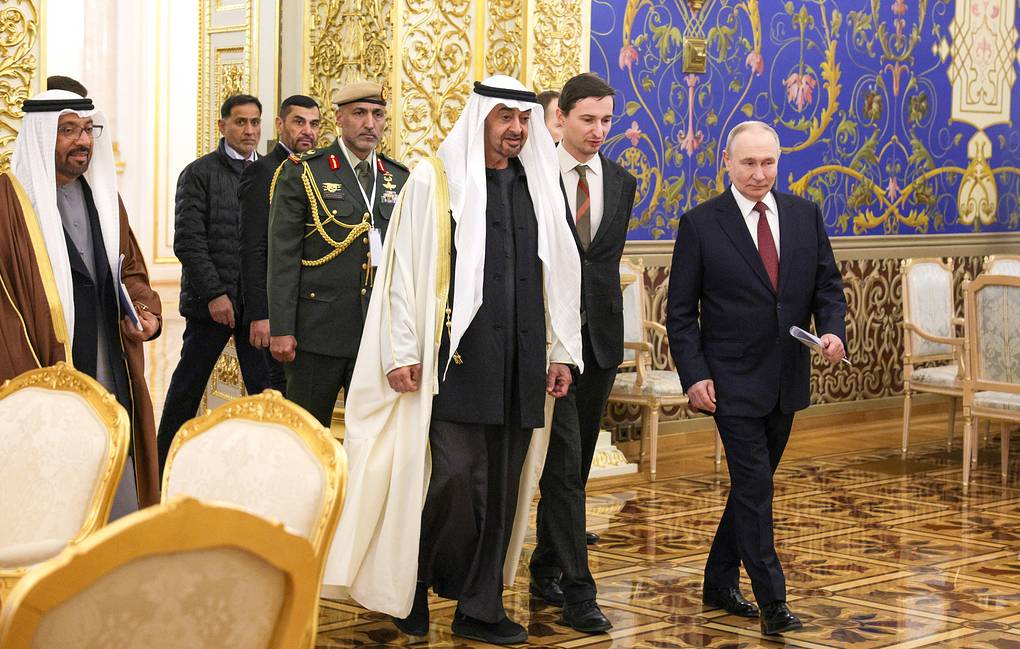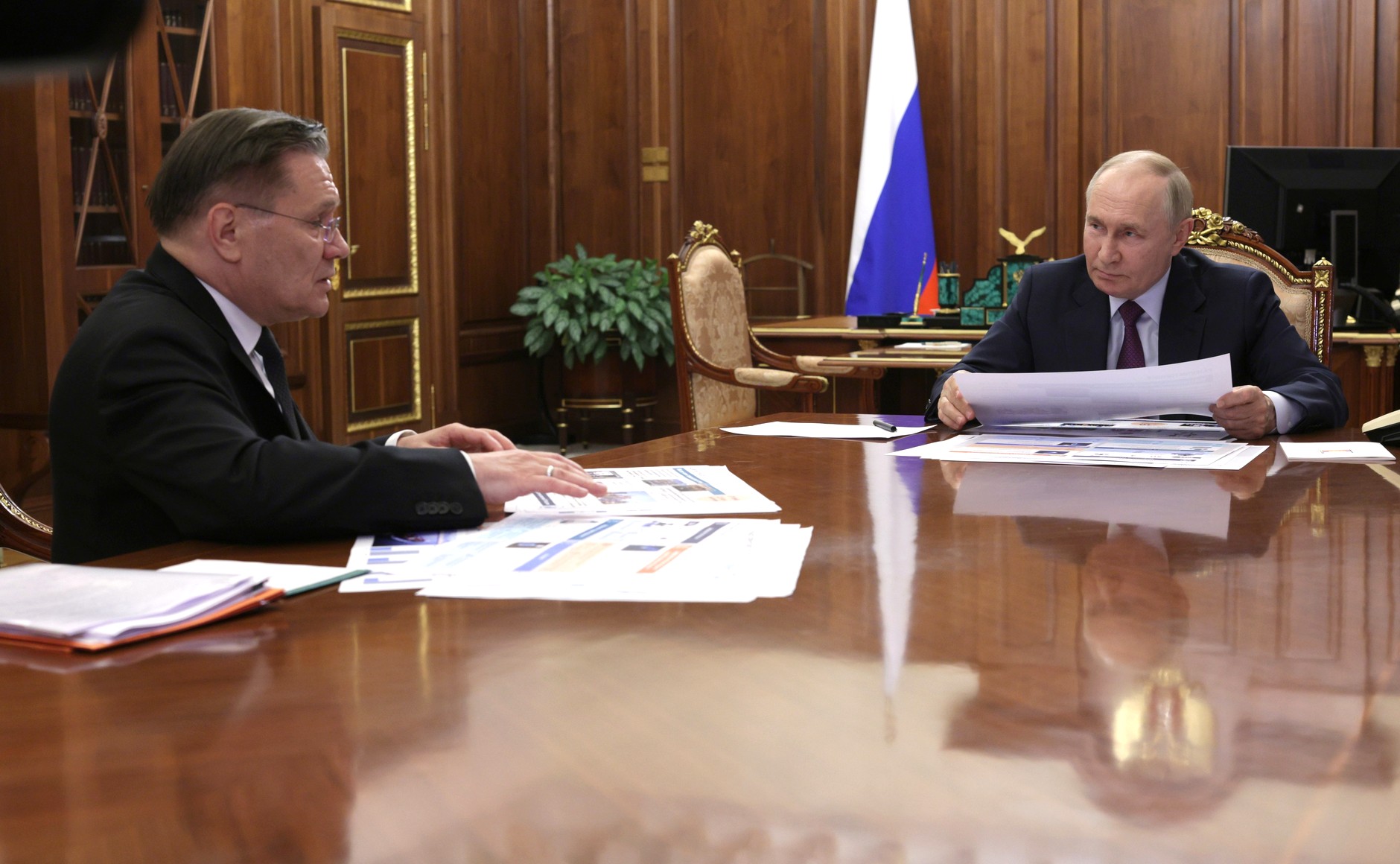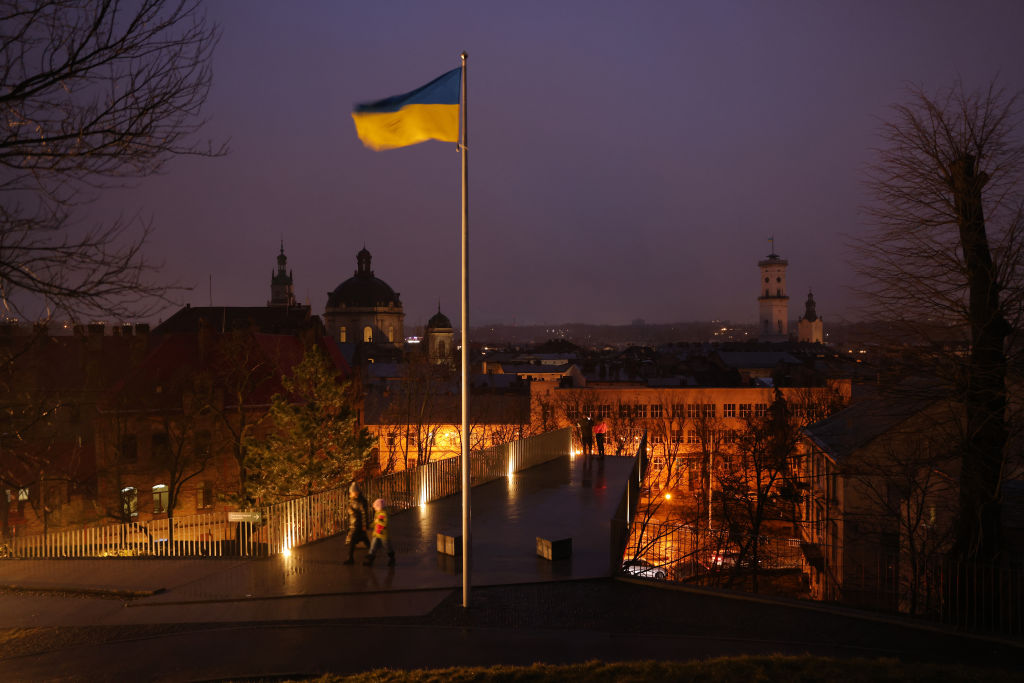Yushchenko Criticizes Tymoshenko for Gas Accords and Plea for Loan from Moscow
Yushchenko Criticizes Tymoshenko for Gas Accords and Plea for Loan from Moscow
Ukrainian President Viktor Yushchenko has accused Prime Minister Yulia Tymoshenko of betraying national interests in the gas agreements concluded in Moscow on January 19 and 20 and by turning to Russia for a loan. Yushchenko used the February 10 meeting of the National Security and Defense Council (SNBO), an advisory body that includes Tymoshenko and is chaired by Yushchenko, not only to instruct the law-enforcement agencies to officially check Tymoshenko’s agreements with Russian Prime Minister Vladimir Putin, but also to express his opinion about them to the prime minister face-to-face, as the two bitter rivals usually avoid seeing each other.
Addressing the SNBO, Yushchenko described the gas contracts as a threat to national security. According to Yushchenko, Ukraine is obliged to buy 50 billion cubic meters (bcm) of gas from Russia each year, although the country will hardly need that much, given the lower industrial consumption resulting from the economic crisis. Yushchenko also noted that, unlike in previous years, Russia did not assume any obligations with regard to the volume of gas transit through Ukraine for 2010, that transit fees had not been increased although the gas price for Ukraine had tripled over the past three years, and that Tymoshenko had agreed to "Europe’s highest" base price of $450 per 1,000 cubic meters in spite of Ukraine’s geographic proximity to Russia (Ukrainska Pravda, February 10).
It was also pointed out at the SNBO that it was not clear who owned the 11 bcm of gas in Ukraine’s storage facilities that Gazprom, according to Tymoshenko, agreed to sell to Ukraine for a discounted price of $153 per 1,000 cubic meters. Dmytro Firtash, who owns the Swiss-registered gas trader RosUkrEnergo jointly with Gazprom, claimed earlier that the gas belonged to RosUkrEnergo and that it was bound for consumers in the EU. The SNBO noted that the dispute over this might result in Ukraine’s failure to fulfill its gas-transit obligations. RosUkrEnergo was dropped as an intermediary in gas trade between Ukraine and Russia according to agreements between Tymoshenko and Putin. Tymoshenko flatly dismissed Yushchenko’s criticism, accused him of trying to restore RosUkrEnergo’s status, and walked out of the meeting (Channel 5, February 10).
Yushchenko instructed the Prosecutor General’s Office and the Security Service to check the Moscow contracts for legal violations (www.president.gov.ua, February 11). Both agencies are loyal to Yushchenko and will most likely find violations, but it is hard to predict the potential practical consequences. Yushchenko will hardly move to nullify the contracts. He pledged in Brussels in January that the contracts would be observed however negative they were (www.ft.com, January 27).
Yushchenko was even unhappier with Tymoshenko’s request for a $5 billion loan from Russia. According to a source in the Ukrainian delegation that Tymoshenko dispatched to Moscow to discuss the loan, Russia came up with the following conditions for Kyiv: dropping any claims to the former Soviet Union’s property abroad and agreeing that Russia should inherit all the assets and liabilities of the Soviet Union, solving all disputes over Russian property in Ukraine, and treating Ukrainian corporate debts to Russia’s Vnesheconombank as Ukraine’s public debt (Zerkalo Nedeli, February 7).
Tymoshenko dismissed the reports about the loan conditions. She also said that she had turned for loans not only to Russia, but also to the EU, the United States, Japan, and China (Interfax-Ukraine, February 7). The only positive answer came from Russia, Tymoshenko reportedly told Yushchenko at the SNBO meeting.
Tymoshenko desperately needs the money. Ukraine is on the verge of a default, because the International Monetary Fund (IMF) is delaying the disbursal of the second tranche of its $16.5 billion loan apparently as a result of the overly optimistic state budget drafted by Tymoshenko’s cabinet. Yushchenko told Tymoshenko that the IMF insisted that the budget should be revised as the IMF expected Ukraine’s GDP to drop by 8 percent and inflation to amount to 16 percent in 2009, while the budget was based on expectations that GDP would grow and inflation would not exceed 10 percent. Yushchenko said that only the Russians would give money to Tymoshenko in this situation, because "their goal is Ukraine’s assets." He claimed that that was the consequence of Tymoshenko’s "corrupt" accords with Putin (Ukrainska Pravda, February 13).
Earlier, Yushchenko’s secretariat had warned that the Russian loan could result in Ukraine losing control over its gas-transit network. Putin has said on several occasions that the network was in bad condition and Russia was not against taking part in its privatization, although this option is forbidden under Ukrainian law (see EDM, January 14). Yushchenko also suspects that Russia is eying shares in several state-controlled companies such as Ukrtelecom, Energoatom, and the Odessa Portside Plant (Ukrainska Pravda, February 9).
Apparently Yushchenko’s belief that Tymoshenko is ready to sacrifice national interests for Moscow’s support in the presidential election in January 2010 is behind all those accusations and suspicions. Yushchenko accused her of treason last summer when she refused to condemn Russia’s actions in Georgia. Ukrainians, however, trust Yushchenko less than they do Tymoshenko. Several recent opinion polls indicated that hardly more than 2.5 percent of Ukrainians would be ready to re-elect him for a second term, while Tymoshenko is the second choice after Viktor Yanukovych. According to the most recent poll by the Kyiv International Institute of Social Studies, 57 percent of Ukrainians want Yushchenko to resign and only 16 percent want Tymoshenko to go (www.korrespondent.net, February 17).


